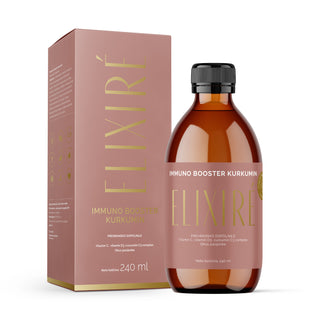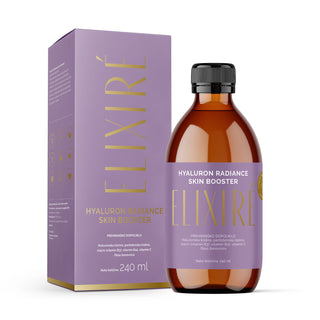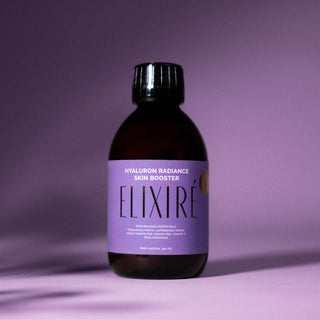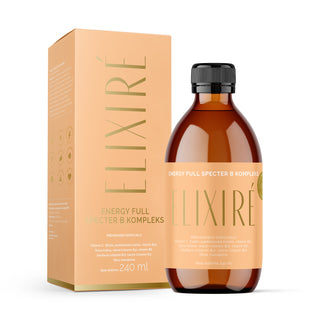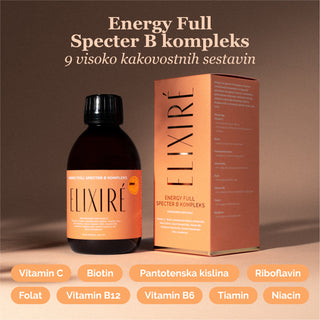In the world of sports, where every percent of strength, energy and speed of regeneration count, athletes are increasingly turning to supportive nutritional supplements. One of the most researched natural antioxidants, which stands out for its connection to energy metabolism, is coenzyme Q10.
What exactly is this substance and what is its role in physical performance?
What is coenzyme Q10?
Coenzyme Q10 (also known as ubiquinone or ubiquinol) is a molecule found in every cell of our body. Its main function is to participate in the formation of ATP – the main source of cellular energy. It is particularly important for the functioning of organs and tissues that have high energy consumption, such as the heart, liver and skeletal muscles. (1*)
In addition, it acts as antioxidant, which means it protects cells from damage caused by free radicals – molecules that are produced during intense exercise, stress and exposure to external factors. (1*)
The impact of physical activity on Q10 levels
During physical exertion, energy expenditure increases significantly. Since coenzyme Q10 is involved in energy production, its reserves in the body can be used up more quickly – especially during prolonged and intense training. Some studies have shown that top athletes often have reduced levels of Q10 in the blood. (2*)
This does not necessarily mean a deficiency, but it does indicate that the needs of an active body for this substance may be higher than can be covered by the daily diet. (*)
Coenzyme Q10 and athletic performance
Although it is not allowed in Slovenia to claim that coenzyme Q10 directly increases performance, many athletes use it as part of their nutritional regimenThis is especially true in disciplines where endurance, regeneration and muscle protection against oxidative stress. (2*)
Some individuals report:
- better regeneration after exertion,
- less fatigue after training,
- greater readiness for further training. (2*)
Also scientific literature (e.g. Nutrients, 2022) cites interesting findings on the role of Q10 in professional sports, but warns that further research is needed.
When do athletes take Q10?
Adding coenzyme Q10 in the form of dietary supplements it is often recommended in the following cases (in consultation with a pharmacist or doctor):
- during high-intensity workouts lasting more than 1 hour a day,
- with increased fatigue after exercise,
- taking statins (cholesterol-lowering drugs), which can reduce Q10 levels,
- in people over the age of 30 or 40, when the natural synthesis of Q10 declines. (2*)
For optimal benefits, Q10 is usually taken along with a meal that contains some fat, because this substance is fat-soluble.
Natural sources of coenzyme Q10
To some extent, Q10 can also be obtained through diet.
They contain the most of it:
- red meat (e.g.beef heart, liver),
- fatty fish (sardines, mackerel, salmon),
- nuts and seeds,
- vegetable oils (sunflower, olive),
- spinach, broccoli, cauliflower. (3*)
However, the amount of Q10 in food is relatively small, so individuals with higher needs often opt for dietary supplements.
Is coenzyme Q10 the right choice for sports support?
Coenzyme Q10 is not a miracle supplement, but its role in energy production and cell protection is well-researched. If you train regularly, are often tired, or want to further support your body during physical exertion, Q10 can be part of your sports routine.
Before starting to take it, always consult a health professional, especially if you are taking medication or have any health problems.
Literature (*):
1. Source:
Coenzyme Q10 supplementation: Efficacy, safety, and formulation challenges, ( M. Arenas-Jal, J.M.
Suñé-Negre, E. García Montoya), https://pubmed.ncbi.nlm.nih.gov/33325173/ 2. Source:
Coenzyme Q10 Supplementation in Athletes: A Systematic Review, ( Santos de Sousa Fernandes, M., Fidelis, DE da S., Aidar, FJ, Badicu, G., Greco, G., Cataldi, S., Santos, GCJ, de Souza, RF, & Ardigo, LP),
https://pubmed.ncbi.nlm.nih.gov/37764774/ 3. Source:
Coenzyme Q10 contents in foods and fortification strategies, (I. Pravst, K. Žmitek, J. Žmitek),
https://pubmed.ncbi.nlm.nih.gov/20301015/



